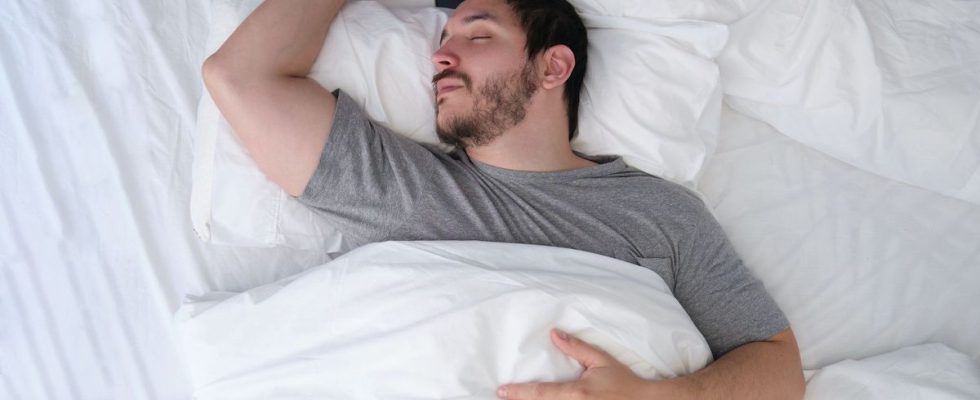Published on
Updated
Reading 3 min.
in collaboration with
Dr Gérald Kierzek (Medical Director)
A French start-up has developed technology that would transform a simple smartphone into a sleep apnea screening tool. Can we trust it? Dr. Gérald Kierzek, medical director of Doctissimo, gives us his opinion.
Sleep apnea, or obstructive sleep apnea-hypopnea syndrome (OSAS), is characterized by repeated cessations of breathing during sleep. Far from being harmless, this pathology affects 4% of French people, and is the cause of fatigue and drowsiness, memory problems, even accidents, and would also increase the risks of high blood pressure and cardiovascular risks. Unfortunately, the disorder still remains underdiagnosed. This is why using accessible technology to detect your own sleep apnea would be useful to speed up treatment.
Apneal launches an application that detects sleep apnea on your smartphone
It is in this context that a French start-up, Apneal, has been working for several years on technology that would allow one to use their smartphone as a screening tool. The principle behind this technology relies on using sensors built into the smartphone, such as the accelerometer and microphone, to monitor body movements and breathing sounds during sleep. The patient would only have to attach their smartphone to the chest to accurately record the vital data necessary to identify breathing interruptions.
“The data collected by the smartphone is then analyzed by an artificial intelligence algorithm, which transforms it into signals that can be compared to those obtained during an advanced clinical examination” indicates the start-up, looking forward to simplifying the diagnosis.
This innovative approach would therefore offer several advantages.
- It would therefore make the diagnosis of sleep apnea much more accessible without going to a clinic;
- It would offer a practical solution for those who suspect they suffer from this disorder but are hesitant to take action.
However, if the application was tested during a preliminary study carried out on 46 patients with the Bichat Hospital in Paris, the start-up announces on its site that it is not yet accessible to the general public.
The Galaxy Watch promises as much from next summer
This announcement echoes another technology mentioned only a week ago by the giant Samsung. Galaxy Watch, Samsung’s connected watch, will offer a function in the Samsung Health Monitor application next summer, capable of identifying the warning signs of obstructive sleep apnea.
To do this, it will be necessary to have a compatible Galaxy watch and a smartphone, and to carry out two sleep monitorings of more than four hours over a period of ten days. But the method seems to convince: Samsung is the first manufacturer to officially obtain approval from the Food and Drug Administration (American FDA), ahead of Apple, which is also working on the subject.
Should we trust these new tools?
The technology could therefore well identify more patients with sleep apnea. But what does a doctor think? We asked the question to Dr Gérald Kierzek, medical director of Doctissimo. He does not hide his interest in his new tools
“Sleep apnea is a major health problem, but to diagnose it, you have to go to a sleep center or accept a complicated polysomnography device at home, with sensors. This is not obvious. So if we can achieve detection by a device that is less restrictive to install, like a simple smartphone, or a connected watch, that would be great!”
However, it is still too early to rejoice or be satisfied with an application, even if it is interesting on paper.
“Be careful, however, beyond these announcement effects, scientific validation is currently lacking. This does not tell us whether it really works or not, whether it is reliable, or what the sensitivity is… To go further in this direction, we need evaluation criteria and a real medical device. Not just an innovative project.”
In this regard, the Apneal solution now claims to test its application on a large study of 500 patients throughout Europe. “Very good, well let’s wait for the conclusions to decide” concludes our expert.
For now, only the Galaxy Watch would be the only one to be able to benefit from scientific validation from the FDA.
